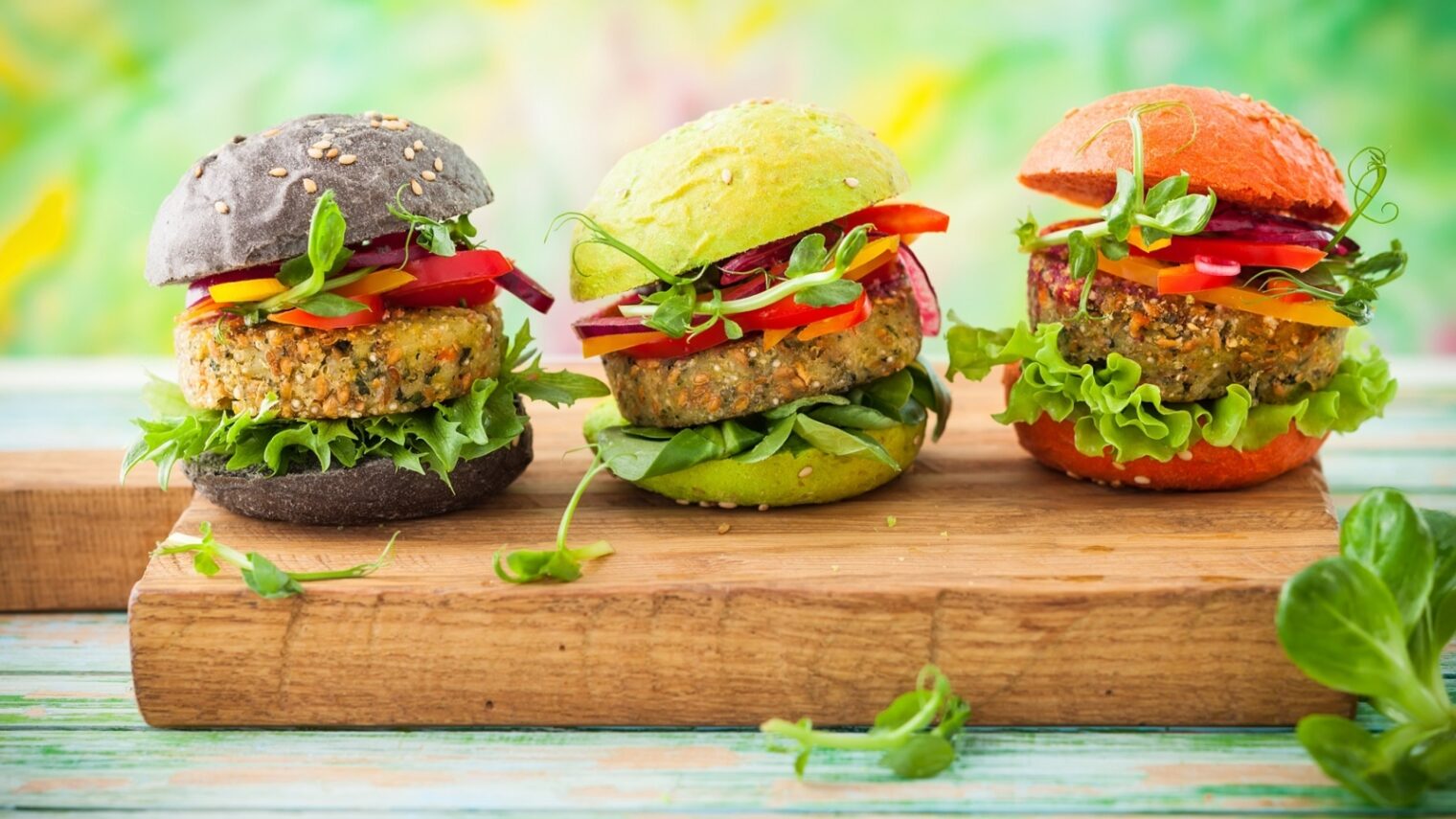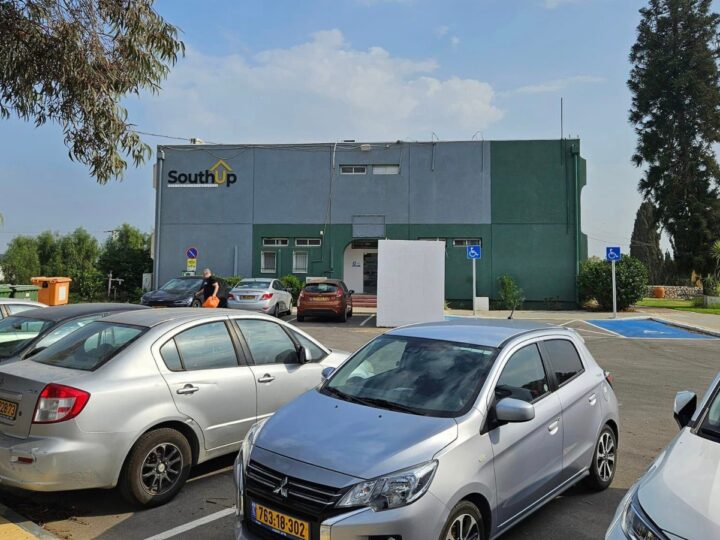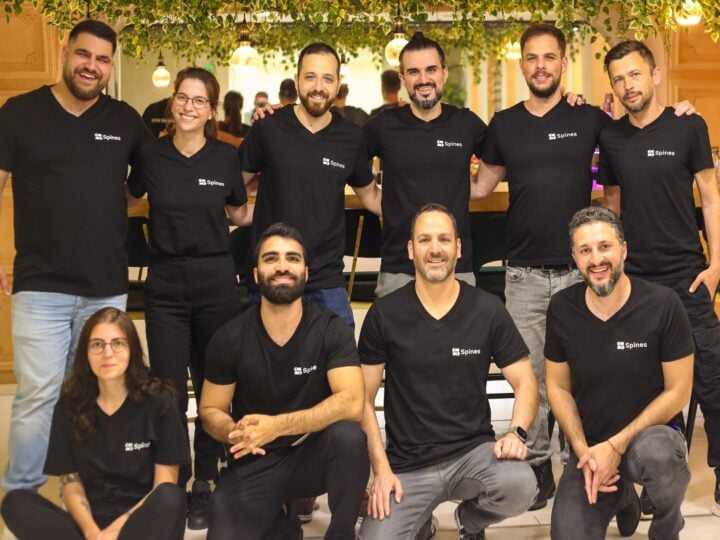You don’t have to be a vegan, animal-rights or environmental activist to understand that mass production and consumption of meat is harming the health of our bodies and our planet – not to mention the 150 billion creatures slaughtered every year in the worldwide meat, egg and dairy industries.
Evidence that “alternative protein” is going mainstream? Meat-free burgers are the newest rage at fast-food chains worldwide. The Dairy Farmers of America reported that sales of cow’s milk dropped about $1.1 billion last year as more people choose nut and plant milks.
There is also increased demand for products with a short list of natural, sustainably grown ingredients.
The challenge is developing solutions that appeal to the taste buds and the wallet.
“We have to put together healthful, locally sourced ingredients in a way that is ‘craveable.’ If it doesn’t work in the mouth, forget about it,” said Barak Melamed, the innovator behind Rilbite, one of many Israeli startups developing craveable alternatives to animal-based foods.
Melamed was among the speakers on the “Future of Proteins” panel at the international FoodTechIL conference in Tel Aviv on September 23.
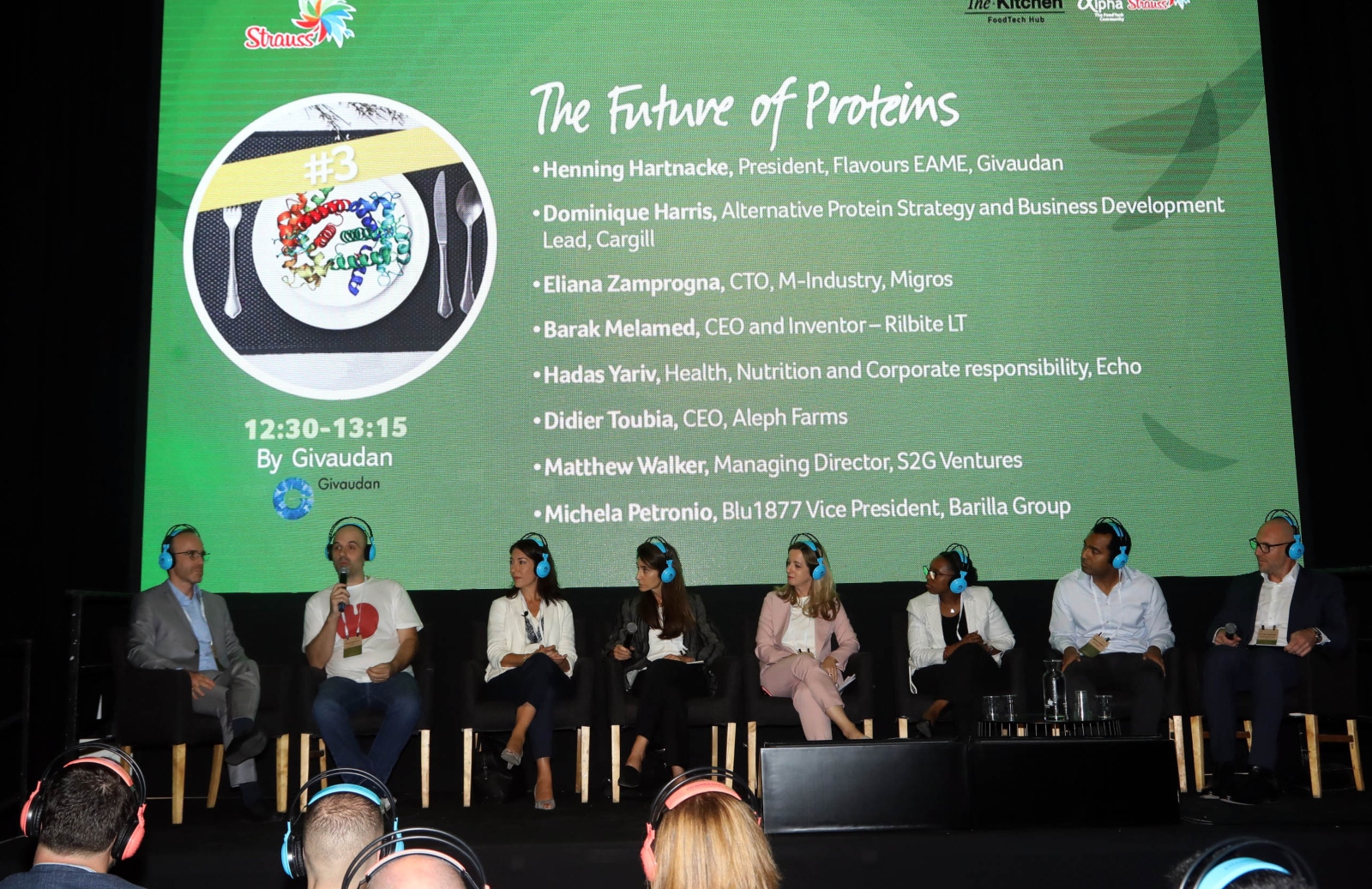
Lest anyone think alt-protein is still a fringe issue, the panel included reps from major food industry players including Cargill (USA), Barilla (Italy), Givaudan and Migros (Switzerland).
FoodTechIL 2019 attracted about 1,500 representatives from global food and beverage companies, investors and innovators from more than 45 countries.

Banners lining the cavernous space at Hangar 11 in the Tel Aviv Port summed up the event’s theme of “Doing Well by Doing Food” in word pairs that are no longer pie in the sky: taste & health, abundance & sustainability, convenience & low footprint.
ISRAEL21c zeroed in on the “consuming protein & loving animals” banner. Here are some of the newest Israeli companies leading the world toward that vision.
Alternatives to meat
The global market for meat alternatives is the fastest-growing segment of the food industry, expected to reach $140 billion by 2030.

Redefine Meat (formerly Jet-Eat) is applying proprietary 3D-printing technology, digital modeling and natural, sustainable ingredient formulations to produce animal-free meat with the appearance, texture and flavor of muscle meat.
Redefine Meat recently raised $6 million in seed funding to further develop its system, which will use individual ingredient cartridges of plant proteins, fats and other ingredients to print forms of fresh vegan “beef” for the food manufacturing supply chain.
Founder Eshchar Ben-Shitrit says Redefine Meat will have a 95% lower environmental impact than animal meat, with no cholesterol and at a similar or lower price point.
“Our goal is not just to develop a new food product, but to introduce a new technology for developing, producing and scaling alt-meat products.”
RilBite is ambitiously positioning itself as the basis for “The burger that saves the world.”
Founded by Barak Melamed and incubated in The Kitchen FoodTech Hub of the Strauss Group in Ashdod, RilBite is developing a “minced plant” product using only six ingredients: onions, tomatoes, textured vegetable protein (TVP) from soy, lentils, rice and spices.
Kinoko Tech, established this year through the HUJI-Innovate Innovation & Entrepreneurship Center of the Hebrew University of Jerusalem by three female founders, is developing a vegan protein with a meat-like texture and umami flavor.
The secret ingredient is an edible mushroom tissue called mycelium, which grows on legumes and grains in a sustainable and ecologically friendly growing system. The startup was one of six finalists in the Strauss Group-EI Food Startup Competition at FoodTechIL.
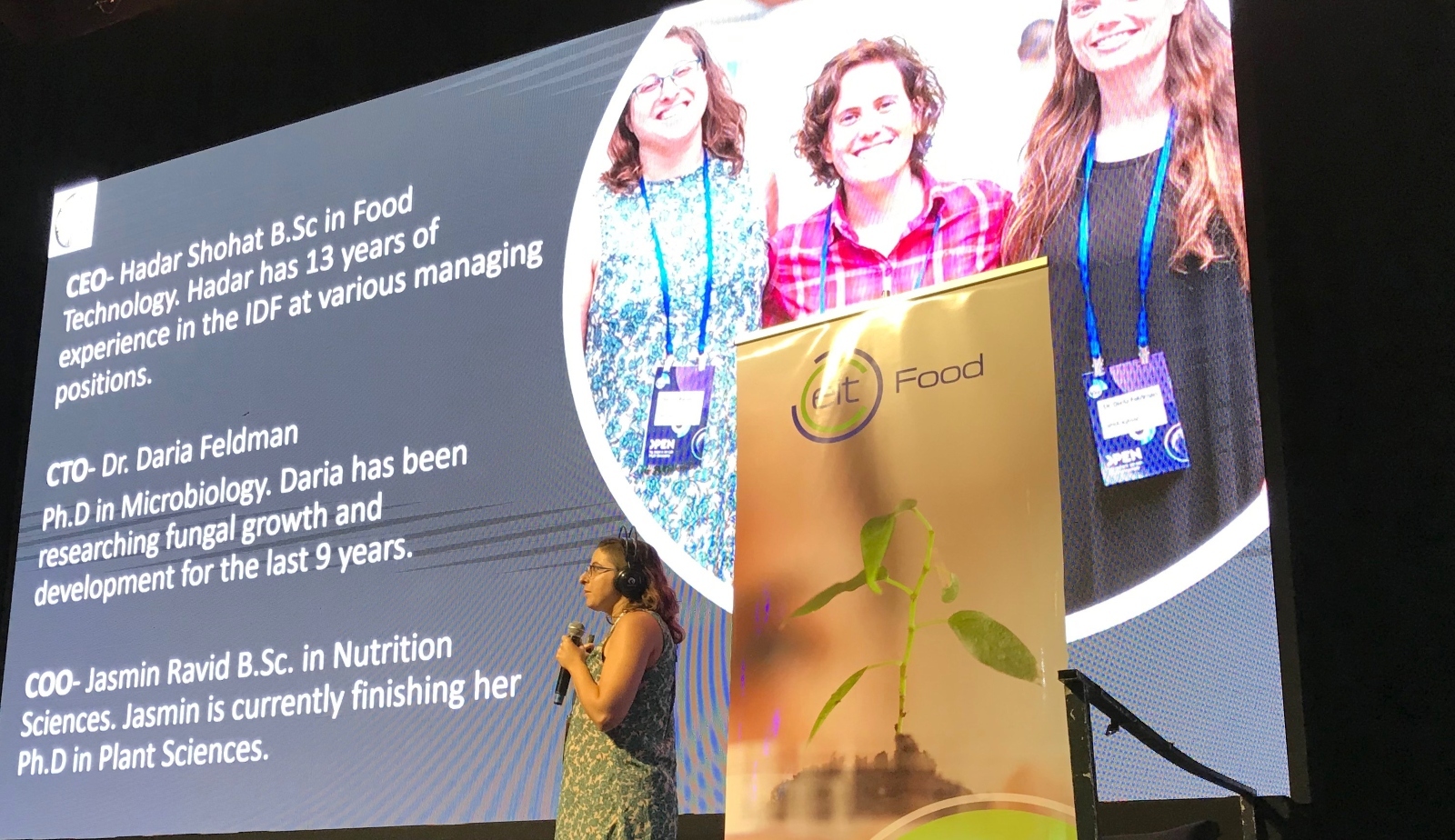
FFW aims to be the first company in the world to launch a yeast-based meat alternative. Founder Leonardo Marcovitz says yeast contains 50% protein and has all the essential amino acids. It’s cheap and easily available. But until now, no one has been able to create a textured product out of yeast or temper its strong umami flavor.
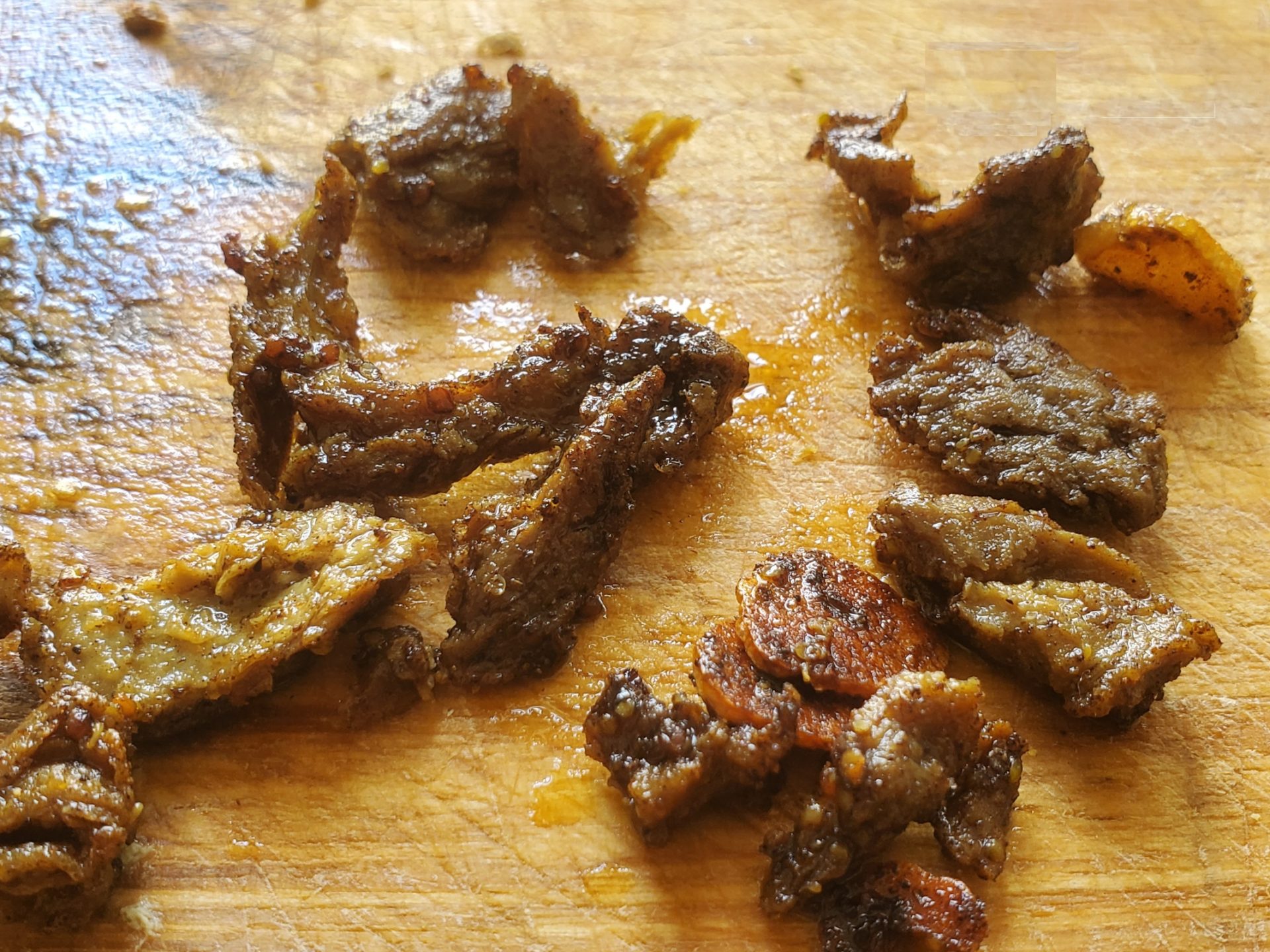
“For the past year, our food technologists have been working on solving those two challenges. We are at the stage of having good samples and we hope to launch in the next six months with our base material, initially for the food-service industry. We’re deciding whether our first product will be in the form of pulled chicken, chicken nuggets or Bolognese.”
The bootstrapped startup will source yeast from partners. Theoretically, one of those partners could be fellow Israeli startup NextFerm, which has developed a proprietary Phaffia yeast fermentation process and hopes to launch “the world’s first fermented, non-GMO, vegan yeast-derived protein isolate with a superior amino acid profile” in 2021.
Seed-breeding specialist startup Equinom is beefing up plant-based meat substitutes with six high-protein legumes including soybeans, peas and chickpeas bred for better flavor and texture and simple protein extraction.
Equinom recently received funding from the European Union’s Horizon 2020 research and innovation program.
“Equinom’s breeding technology grows better-for-you ingredients that do away with over-processing, simplify ingredient lists and eliminate the need for additives, so producers can go ‘from plant to product’ in fewer steps,” said Marketing Director Itay Dana. Manufacturers can choose which ones best meet their needs for particular products using a smartphone app.
Several other Israeli companiesare developing plant protein ingredients for use in clean-label foods.
Amai Proteins is formulating sweet “designer proteins” fermented from plants as a sugar substitute for the food and beverage industry. On September 18, Amai won The Pitch, a major annual Israeli startup competition held at the international Journey tech conference in Tel Aviv.
Hinoman cultivates Mankai, a rare sea plant-based source of highly bioavailable protein, B12, and iron.
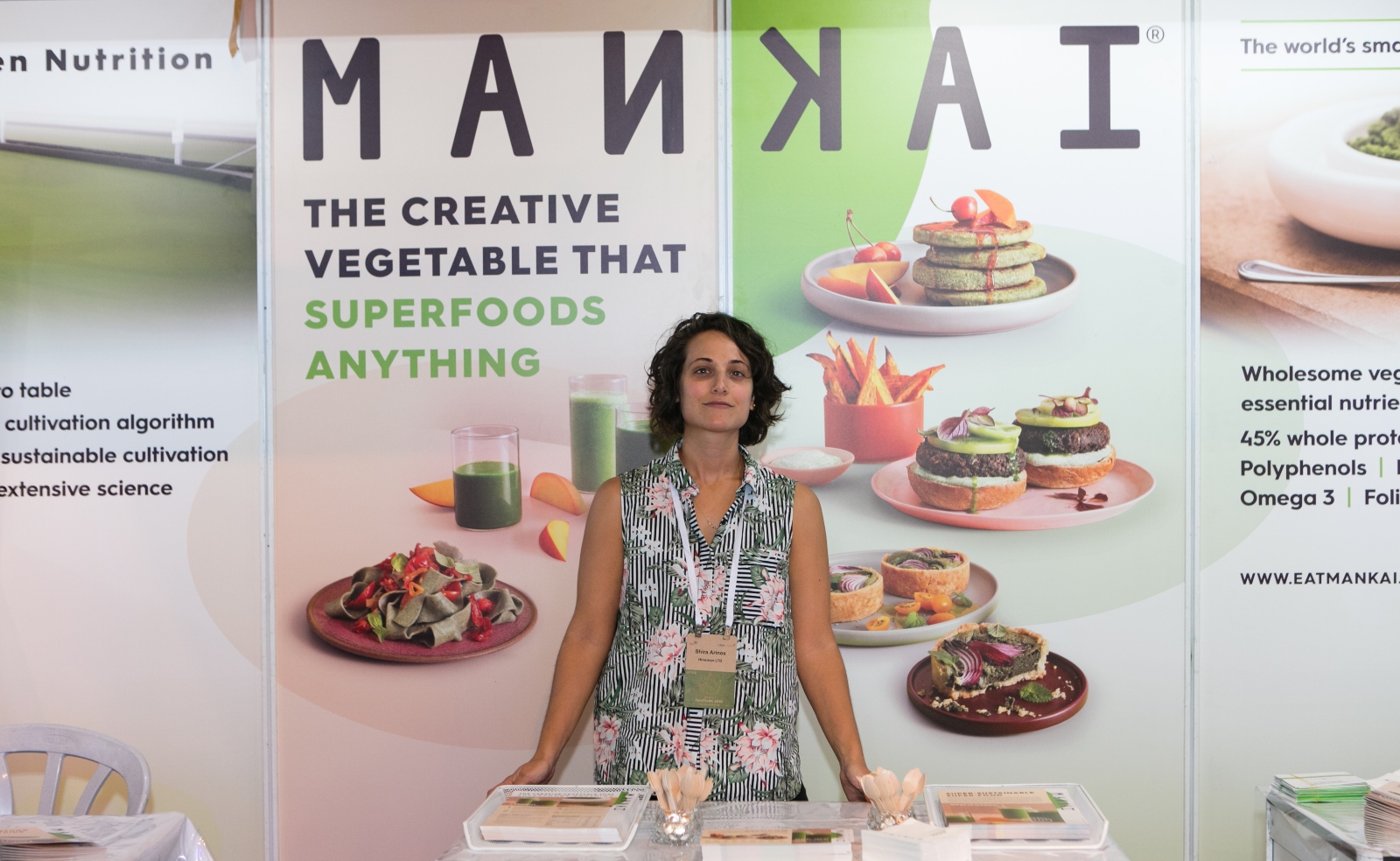
InnovoPro and ChickP have developed proprietary technologies for extracting neutral-tasting protein from chickpeas for use in the food industry.
Seakura grows high-protein macro-seaweed in seawater on land-based farms, allowing control over water quality, growth cycle and product quality. Seakura sells a range of packaged products in Israel, Italy, France and England to add an umami flavor and protein boost to soups, omelets, cooked dishes, salads, spreads and shakes.
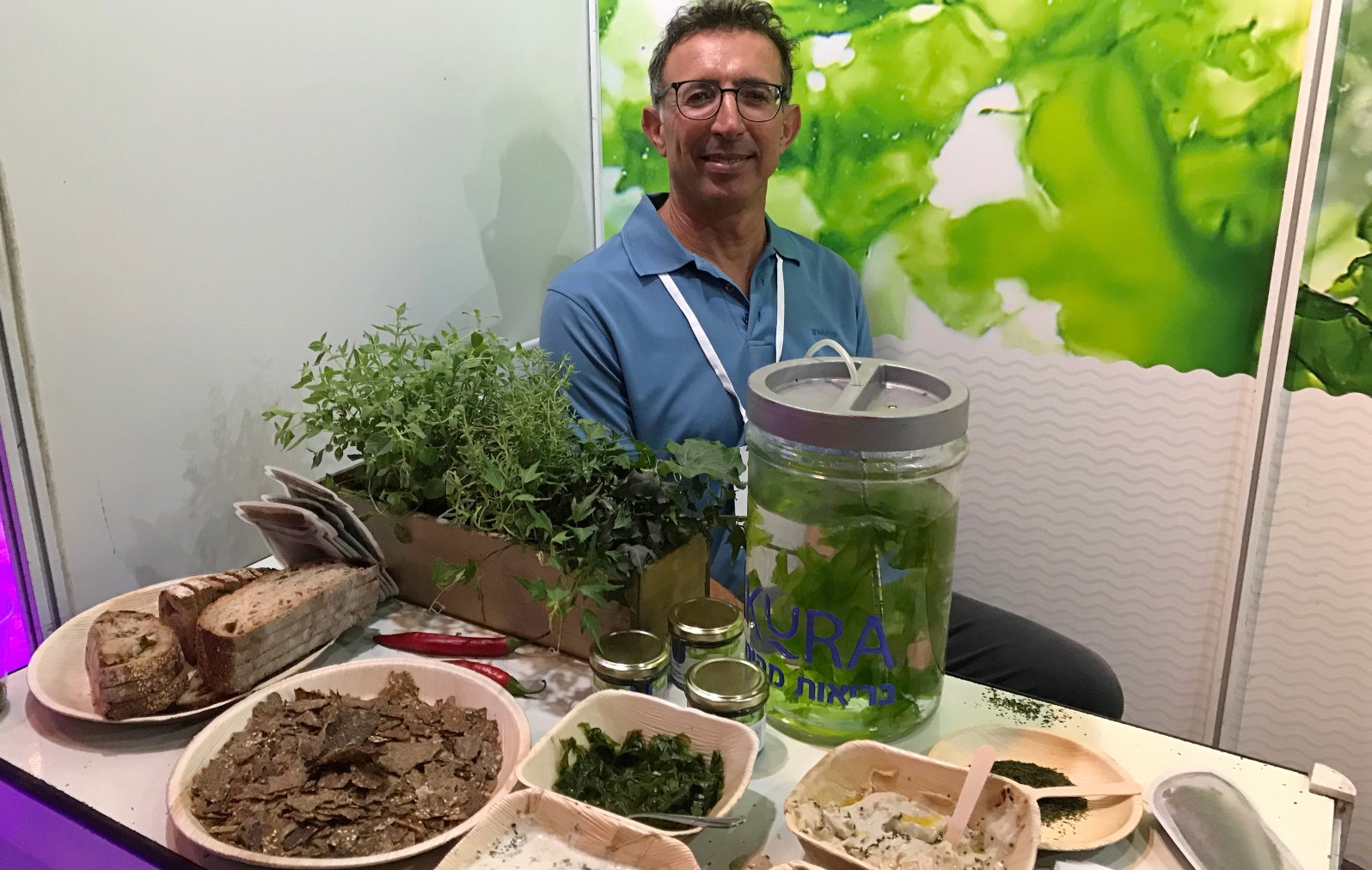
Cheese, egg and milk alternatives
Growing numbers of consumers are avoiding dairy and egg products because of allergies, health and/or animal-welfare concerns. Both established Israeli companies and startups are filling supermarket shelves with new alternatives to meet the demand.
Among the startups displaying their solutions at FoodTechIL 2019 were these:
Yofix sells soy-free yogurt alternatives made from oats, legumes and seeds. The fermented, cultured products contain protein, fiber, calcium and iron, have no added sugar or preservatives, and are pre- and probiotic.
Zero Egg is developing a plant-based liquid that tastes, looks and functions like real eggs in dishes from omelets to cakes to homemade noodles.
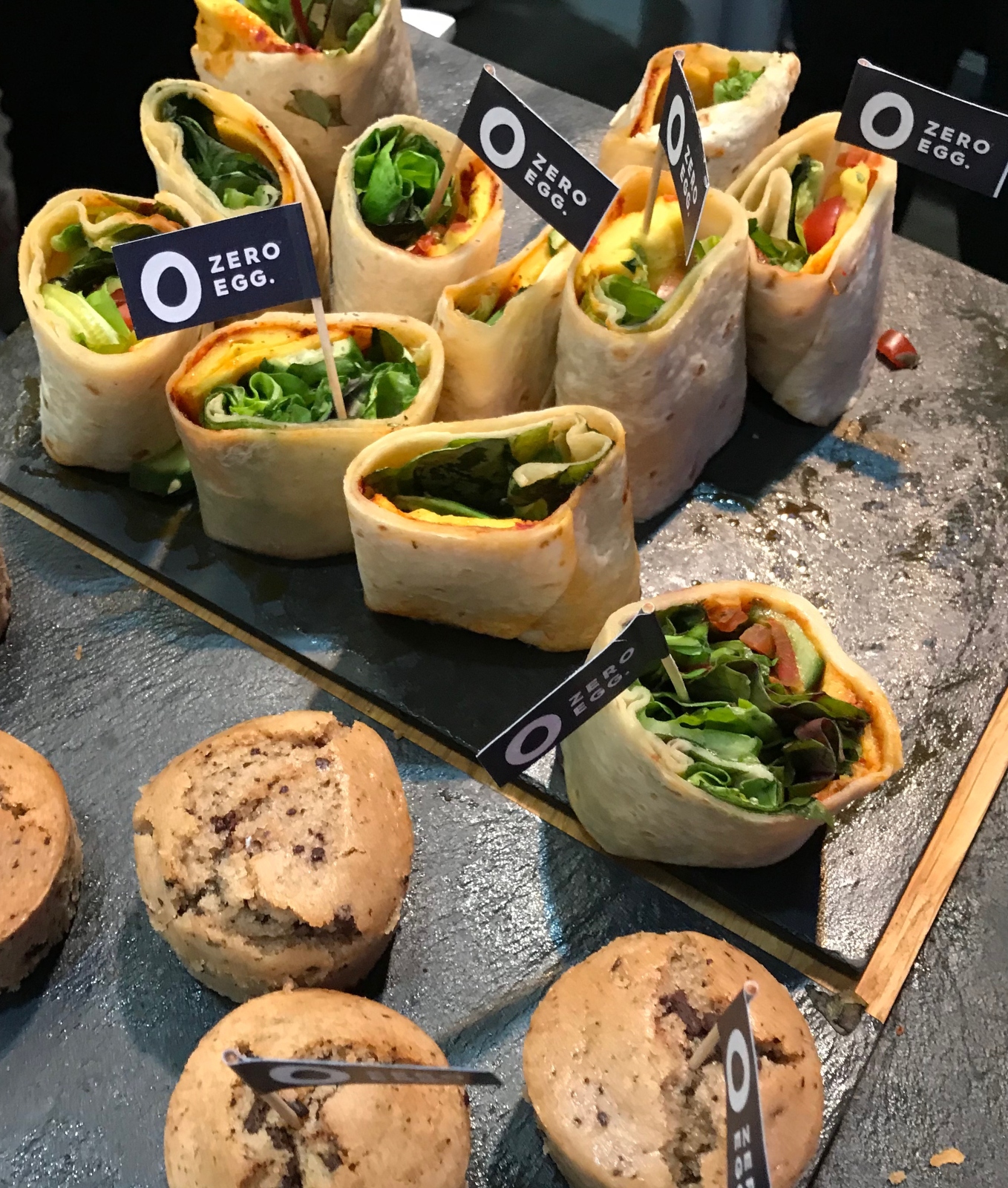
GoodFoods is developing vegan versions of parmesan, mozzarella and gouda cheeses based on cashews. Founded this year by Michal Peleg, GoodFoods ran a test pilot in six Israeli stores and is now seeking investment to establish a production facility.
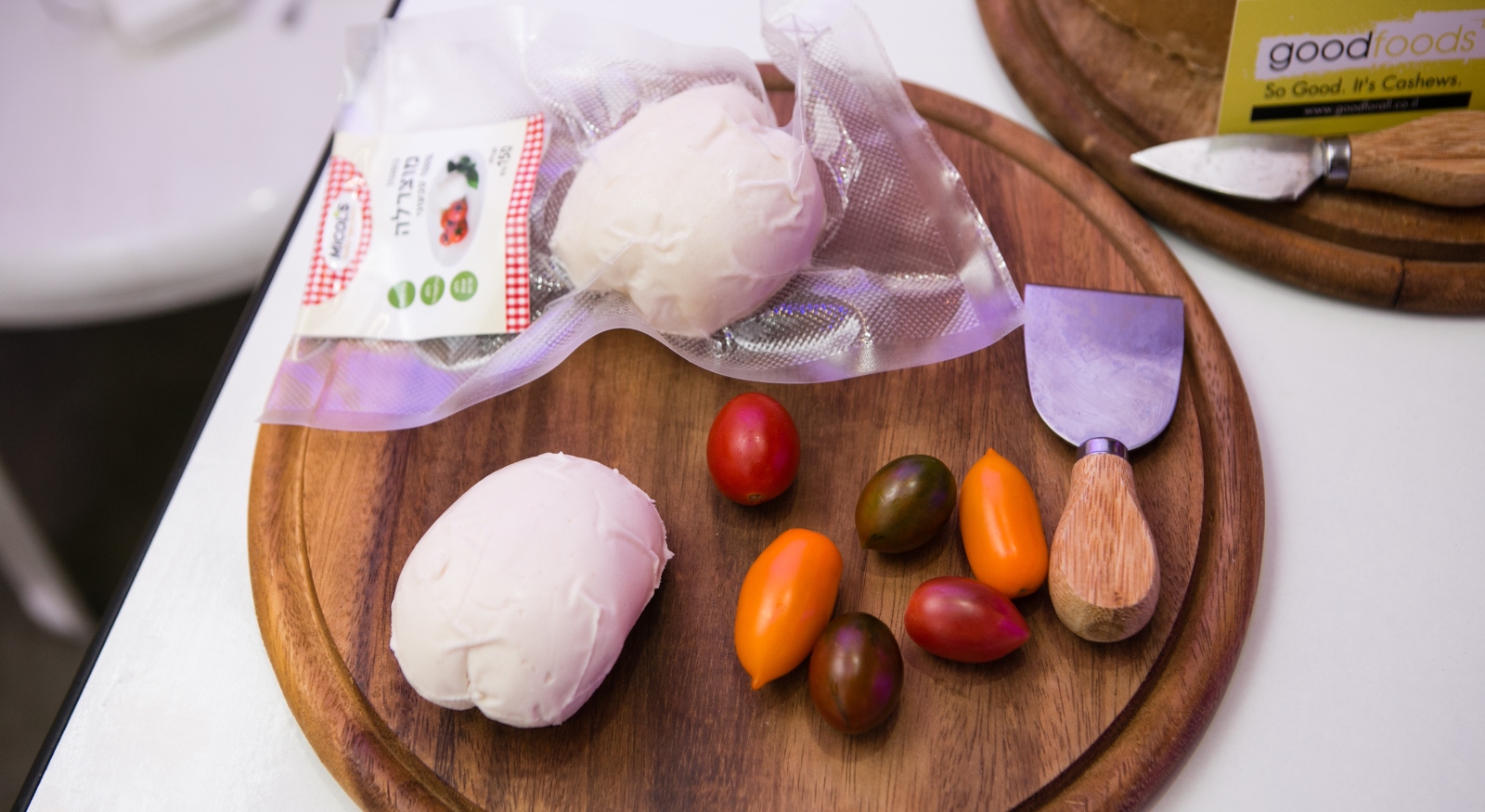
Else Nutrition (formerly INDI) expects its soy-free, gluten-free, non-GMO vegan baby formula to hit the market next year following five years of development.
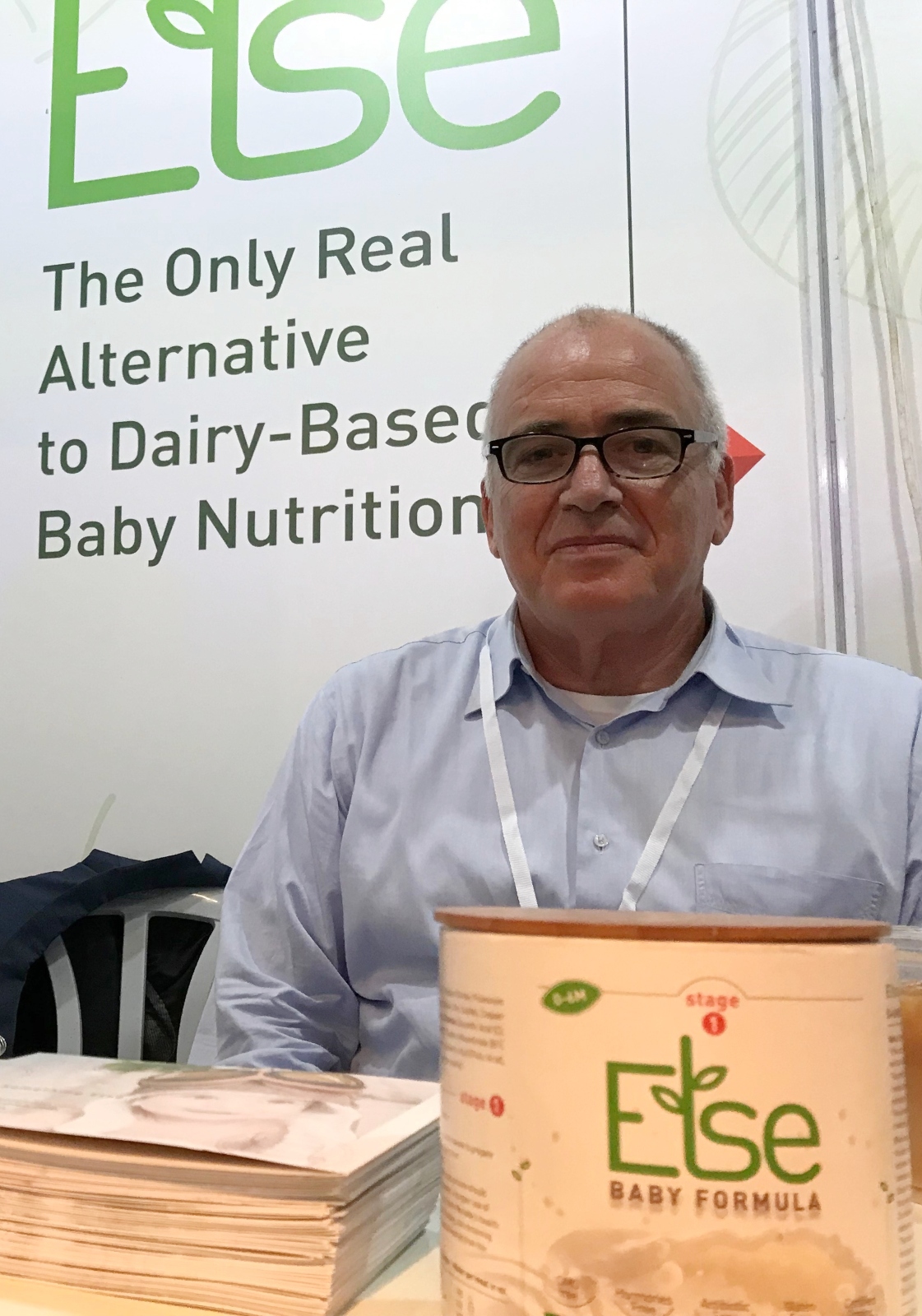
The inspiration for Else was the little granddaughter of founder Uriel Kesler, who couldn’t tolerate dairy or soy. Kesler experimented with nutritious almond paste until he found a drink that worked.
Then, he and Hamutal Yitzhak, co-owners of Golden Heart baby food, gathered a team and began R&D.
The result is an organic almond-and-buckwheat formula for ages 12-36 months that mimics breast milk’s nutritional composition values. Else was one of the six finalists in the startup competition at FoodTechIL.
Cultured meat and animal-based protein alternatives
According to the Israel Innovation Authority’s new report on Israeli food-tech, Israel is home to five of the nine active companies in the world developing cultured meat (also called clean or cellular meat).
This is real meat in every respect, cultured in a lab from animal cells. No animals will have to be slaughtered to produce authentic burgers, steak or chicken.
Cultured meat addresses the environmental and animal-welfare concerns of people who want to eat meat more responsibly. It also avoids health issues stemming from antibiotics, hormones and bacterial contamination in conventional meat. Tastewise, it retains the heme – the iron-carrying molecule that gives meat its distinct taste – usually lacking in plant-based alternatives.
One of those five Israeli companies, Aleph Farms, raised $12 million last May to further develop its technology invented in the lab of Technion Prof. Shulamit Levenberg.
“We see cultured meat and fish as one part of the solutions to the demand for protein alternatives, said Aleph Farms CEO Didier Toubia at FoodTechIL. “For some people it still sounds like sci-fi, so it’s important to explain the advantages of cultured meat and that it contains all the amino acids, vitamins and heme of conventional meat.”
For the more adventurous (or frugal) meat-eater, two Israeli startups have unusual protein additives that are animal-based but don’t involve livestock farms and bloody slaughter.
The powder from Hargol Tech is made from a kosher and halal grasshopper species, offering a neutral taste, all essential amino acids, and very low saturated fat and cholesterol. The insects are grown sustainably in a zero-waste farming system.
Incubated at the government-run Trendlines Incubator, Hargol has won numerous awards and began selling its powder in early 2018.
Flying SpArk protein powder and oil is derived from fruit-fly larvae. It is low fat, has all essential amino acids, and contains 70% protein plus bio-available calcium, iron, magnesium and zinc.
The 18 companies mentioned above are just the tip of the Israeli food-tech iceberg! According to IVC Research Center, in 2018 there were more than 300 startups active in this field in Israel, compared to 170 in 2014. Watch for additional stories about Israel’s fast-growing food-tech sector on ISRAEL21c.




